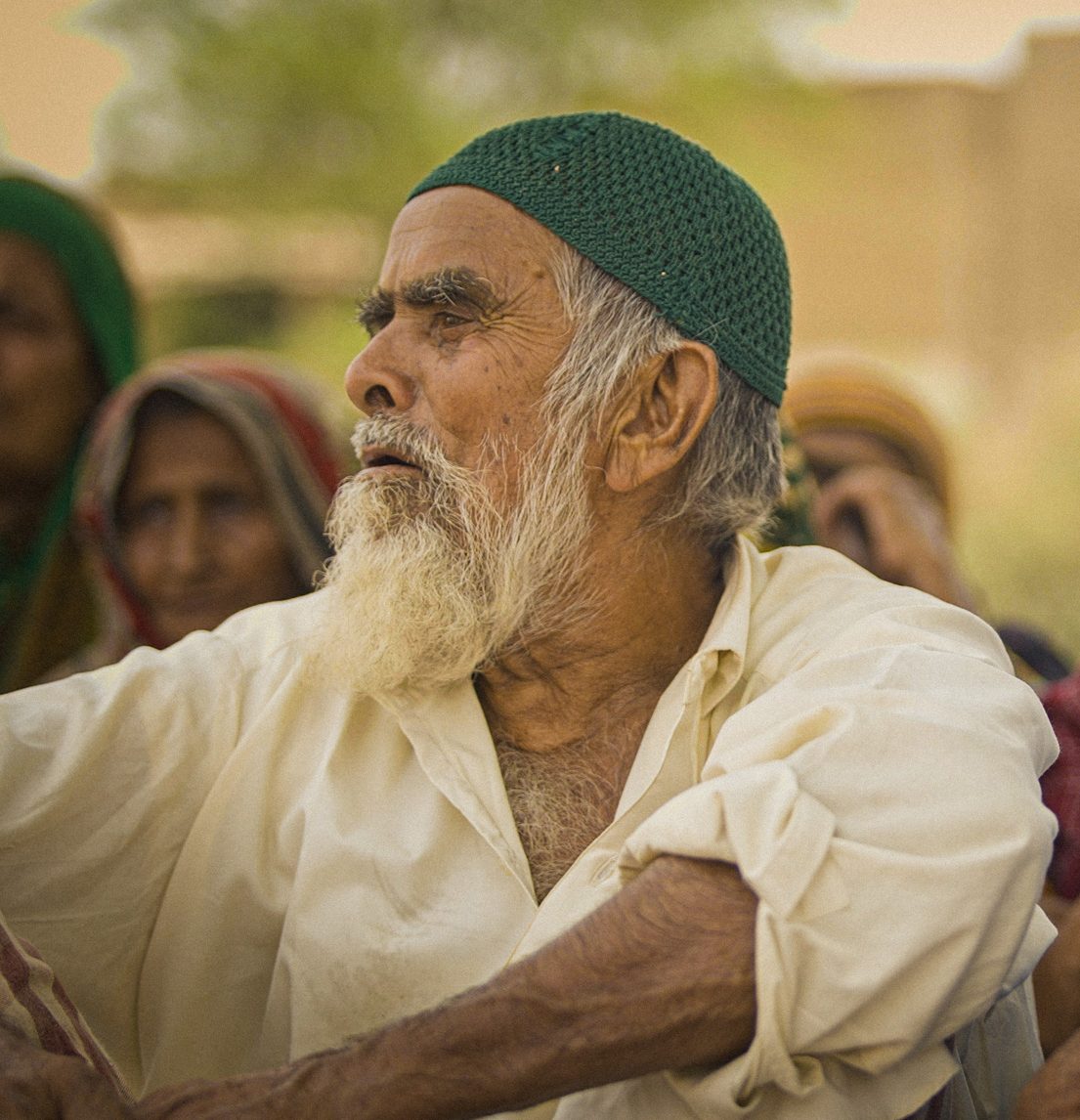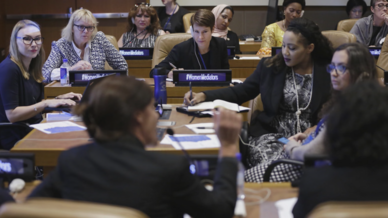Report on Alleged Human Rights Violations in Israeli Detention and Implications for Sustainable Development Goals
Executive Summary
Recent testimonies from released Palestinian detainees allege systematic torture, denial of medical care, and inhumane treatment within Israeli detention facilities. These accounts, supported by human rights organizations, indicate severe contraventions of international law and represent a significant setback for the achievement of several Sustainable Development Goals (SDGs), particularly SDG 16 (Peace, Justice and Strong Institutions) and SDG 3 (Good Health and Well-being).
Violations of SDG 3: Good Health and Well-being
The physical and mental health of detainees has been severely compromised, directly undermining the targets of SDG 3. Reports indicate a consistent pattern of abuse leading to dire health outcomes.
- Denial of Medical Care: The case of Mahmoud Abu Foul, a 28-year-old detainee, exemplifies this failure. After being beaten unconscious and losing his sight, his requests for adequate medical treatment were reportedly ignored, resulting in permanent injury.
- Physical Abuse and Malnutrition: Many of the nearly 2,000 detainees released show visible signs of abuse, including severe injuries and emaciation. One prisoner reportedly lost nearly half his body weight.
- Detainee Deaths: The United Nations estimates that at least 75 Palestinian detainees have died in Israeli custody since October 2023. Medical sources examining returned bodies report evidence of abuse and possible executions, representing the ultimate failure to protect life and well-being.
Contravention of SDG 16: Peace, Justice and Strong Institutions
The allegations point to a systemic breakdown in the rule of law, access to justice, and the function of state institutions, which are central tenets of SDG 16.
- Failure to Ensure Access to Justice (Target 16.3): Detainees, including the 100 individuals whose testimonies were documented by the Palestinian Centre for Human Rights, were systematically held incommunicado. They were denied access to judges, lawyers, and family members, precluding any form of legal due process.
- Prevalence of Violence and Torture (Target 16.1): Human rights groups like B’Tselem have described the prison system as a “network of torture camps.” Testimonies confirm systematic physical abuse, denial of food, and sexual violence across all facilities, not limited to specific locations.
- Lack of Accountability and Institutional Integrity (Target 16.a): Despite hundreds of reported abuse cases, Israeli authorities have brought indictments in only two incidents, with no prison service personnel charged. This lack of accountability is compounded by statements from officials, such as National Security Minister Itamar Ben-Gvir, who has publicly defended harsh treatment, undermining the role of institutions in preventing violence.
Broader Implications for Sustainable Development
The reported abuses have wider implications for the 2030 Agenda for Sustainable Development.
- SDG 10 (Reduced Inequalities): The targeting of a specific population for such treatment highlights profound inequalities in the application of justice and protection of human rights.
- SDG 5 (Gender Equality): Reports of sexual violence against detainees represent a grave violation of the goal to eliminate all forms of violence against individuals.
- SDG 17 (Partnerships for the Goals): The work of organizations such as the Public Committee Against Torture in Israel (PCATI) and Physicians for Human Rights – Israel underscores the critical role of civil society in monitoring and advocating for human rights and justice, even when state institutions fail to act.
Analysis of Sustainable Development Goals in the Article
1. Which SDGs are addressed or connected to the issues highlighted in the article?
-
SDG 3: Good Health and Well-being
This goal is relevant due to the severe health consequences faced by detainees. The article details physical injuries, denial of medical care, and significant weight loss, directly contradicting the aim of ensuring healthy lives and promoting well-being for all.
- Mahmoud Abu Foul lost his sight due to beatings and was denied effective medical treatment.
- Another prisoner lost “nearly half his body weight” during detention.
- The article mentions detainees emerging with “visible signs of abuse” and “visible injuries.”
-
SDG 16: Peace, Justice and Strong Institutions
This is the most central SDG addressed. The article focuses on the breakdown of justice, the rule of law, and the presence of violence and torture within detention facilities. It highlights the failure of institutions to protect fundamental human rights.
- Systematic torture is documented, with facilities described as a “network of torture camps.”
- Detainees are held “incommunicado without access to judges, lawyers or family members,” and many are held “without trial or any proper legal process.”
- The article reports that at least 75 detainees have died in Israeli prisons, with medical sources suggesting some were “executed while restrained.”
- There is a lack of accountability, with Israeli authorities bringing indictments in only two of hundreds of reported abuse cases, and no prison service personnel being charged.
2. What specific targets under those SDGs can be identified based on the article’s content?
-
Under SDG 3: Good Health and Well-being
- Target 3.8: Achieve universal health coverage, including financial risk protection, access to quality essential health-care services and access to safe, effective, quality and affordable essential medicines and vaccines for all.
The article directly contradicts this target by describing how Mahmoud Abu Foul was denied necessary medical treatment for his eyes after being beaten and losing his sight. He was only given “one type of eye drops, which did nothing.” This shows a clear failure to provide access to quality essential health-care services for detainees.
- Target 3.8: Achieve universal health coverage, including financial risk protection, access to quality essential health-care services and access to safe, effective, quality and affordable essential medicines and vaccines for all.
-
Under SDG 16: Peace, Justice and Strong Institutions
- Target 16.1: Significantly reduce all forms of violence and related death rates everywhere.
The article highlights extreme violence within prisons, leading to death. It states that the UN estimates “at least 75 Palestinian detainees have died in Israeli prisons since October 2023,” and medical sources found “evidence of abuse on some of the corpses” and signs of possible “executions.” - Target 16.2: End abuse, exploitation, trafficking and all forms of violence against and torture of children.
While the article does not specify the age of all detainees, this target’s principle of ending abuse and torture is central. The article provides extensive evidence of torture, with the Palestinian Centre for Human Rights finding that “torture was systematic across all Israeli prison facilities.” - Target 16.3: Promote the rule of law at the national and international levels and ensure equal access to justice for all.
This target is undermined by the report that detainees were “held incommunicado without access to judges, lawyers or family members” and that “about 9,000 Palestinian prisoners remain in Israeli jails, many without trial or any proper legal process.” This demonstrates a severe lack of access to justice.
- Target 16.1: Significantly reduce all forms of violence and related death rates everywhere.
3. Are there any indicators mentioned or implied in the article that can be used to measure progress towards the identified targets?
-
For Target 16.1 (Reduce violence and death rates):
- Indicator 16.1.1: Number of victims of intentional homicide per 100,000 population, by sex and age.
The article provides specific numbers that can be used as a proxy for this indicator in the context of detention facilities: “The United Nations estimates that at least 75 Palestinian detainees have died in Israeli prisons since October 2023.” It also mentions, “Israel has returned at least 100 bodies of Palestinians who died in detention.”
- Indicator 16.1.1: Number of victims of intentional homicide per 100,000 population, by sex and age.
-
For Target 16.2 (End abuse and torture):
- Indicator 16.2.2: Number of victims of human trafficking per 100,000 population, by sex, age and form of exploitation. (The principle of tracking victims of violence is relevant here).
The article provides qualitative and quantitative data on victims of abuse. The Palestinian Centre for Human Rights documented “testimonies from 100 former detainees” who experienced systematic torture. The accounts of Mahmoud Abu Foul and others with “visible signs of abuse” serve as case-study indicators.
- Indicator 16.2.2: Number of victims of human trafficking per 100,000 population, by sex, age and form of exploitation. (The principle of tracking victims of violence is relevant here).
-
For Target 16.3 (Promote rule of law and access to justice):
- Indicator 16.3.2: Unsentenced detainees as a proportion of overall prison population.
The article implies a high proportion of unsentenced detainees by stating that many of the “9,000 Palestinian prisoners remain in Israeli jails, many without trial or any proper legal process.” The fact that they are held “incommunicado without access to judges, lawyers or family members” is a direct measure of the lack of due process.
- Indicator 16.3.2: Unsentenced detainees as a proportion of overall prison population.
-
For Target 3.8 (Achieve universal health coverage):
- Indicator 3.8.1: Coverage of essential health services.
The article provides a clear negative indicator through the testimony of Mahmoud Abu Foul, who was denied effective medical treatment for a severe injury (loss of sight) inflicted upon him in detention. His statement, “I kept asking for medical treatment, but they only gave me one type of eye drops, which did nothing,” indicates a complete lack of coverage for essential health services in his case.
- Indicator 3.8.1: Coverage of essential health services.
4. Table of SDGs, Targets, and Indicators
| SDGs | Targets | Indicators |
|---|---|---|
| SDG 3: Good Health and Well-being | 3.8: Achieve universal health coverage, including access to quality essential health-care services. | Denial of effective medical treatment to detainees, as exemplified by Mahmoud Abu Foul’s case where he was denied proper care after losing his sight. |
| SDG 16: Peace, Justice and Strong Institutions | 16.1: Significantly reduce all forms of violence and related death rates everywhere. | The number of detainee deaths reported: “at least 75 Palestinian detainees have died in Israeli prisons since October 2023.” Evidence of abuse and possible executions on returned bodies. |
| 16.2: End abuse, exploitation, trafficking and all forms of violence against and torture. | Testimonies from 100 former detainees documenting “systematic” torture. Visible signs of abuse on released prisoners. | |
| 16.3: Promote the rule of law and ensure equal access to justice for all. | The number of prisoners held “without trial or any proper legal process” (estimated to be a large portion of the 9,000 prisoners). Detainees being held “incommunicado without access to judges, lawyers or family members.” |
Source: aljazeera.com






